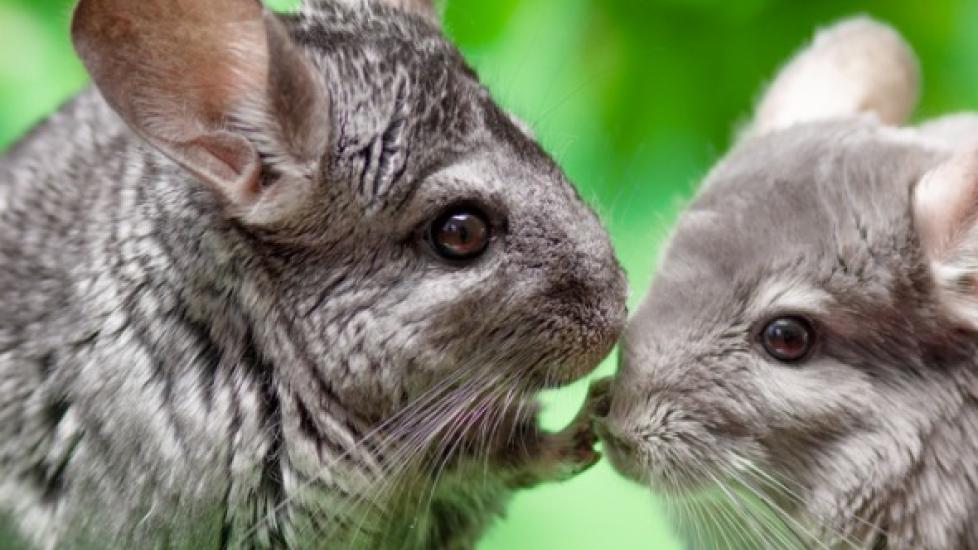Difficulty Giving Birth in Chinchillas
Dystocia in Chinchillas
When a chinchilla has difficulty giving birth or there is a birthing abnormality, the condition is called dystocia. Though this condition is rarely encountered in chinchillas, dystocia can occur in very young females when they are bred early before the uterus and pelvic bones have fully developed. Dystocia may also occur when the fetus is abnormally large or in misplaced fetuses.
When dystocia is suspected, a veterinarian should be asked to tend to the case to prevent any complications from developing. The veterinarian will use hormonal aids like oxytocin to help the chinchilla deliver the kit in an easier manner. If the chinchilla still faces difficulty giving birth, surgical delivery in the way of C-section may be done.
Symptoms
- Labor exceeding four hours
- Discomfort
- Partial birth
- Pregnancy past due date
Causes
Dystocia in chinchillas may be observed with an abnormally large or misplaced fetus, or in young females bred too early. Poorly conditioned females may also develop a condition in which uterine contractions weaken or stop, or they may lack sufficient strength to deliver the kits.
Diagnosis
Diagnosis is based on the symptoms observed. If the chinchilla has passed the due date and still not delivered, your veterinarian might want to check on your chinchilla’s condition by taking an X-ray of the uterus.
Treatment
If labor continues for more than four hours, your veterinarian would suspect a case of dystocia and administer oxytocin, a medicine that helps labor progress. If the chinchilla continues to experience difficulty giving birth, a Cesarean section would be performed.
Living and Management
A chinchilla that has undergone dystocia and is recovering should be given good rest in a clean and safe environment. Any supportive care as mentioned by your veterinarian should be administered routinely. Chinchillas in post-operative care following a C-section should be given supportive therapy to help the operation wound heal.
Prevention
Giving a good nutritious diet to your chinchillas and avoiding breeding at a very early age can prevent dystocia due to these causes from developing. It is advisable to take a scan or an X-ray midway through gestation to check for any abnormalities in the fetus. If such cases are found, it is better to terminate the pregnancy to prevent dystocia from developing.
Featured image: Alina Prochan
